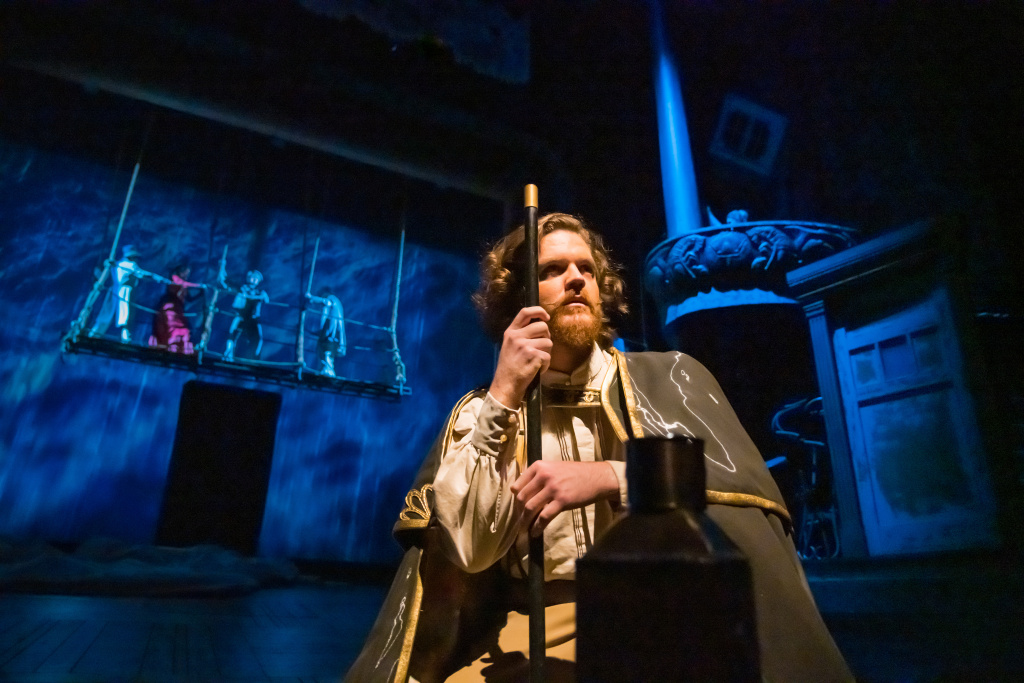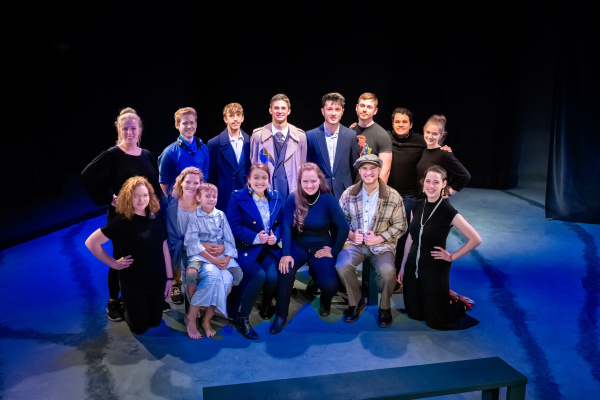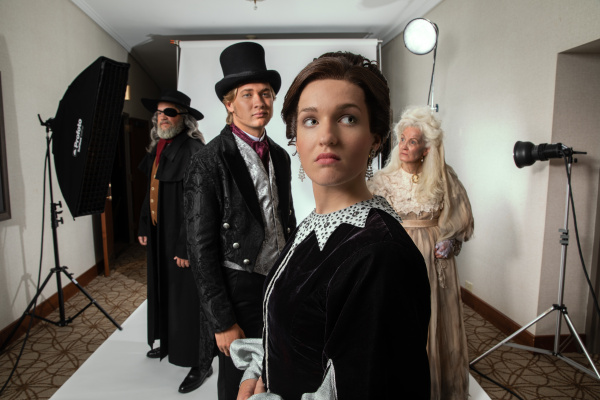In Shakespeare’s play The Tempest, Prospero is a masterful magician who creates a storm to shipwreck those who robbed him of his dukedom. He manipulates subsequent events in order to restore his position and his relationship with the king, and he does so in a way that mimics a playwright working his magic. It’s no surprise, then, that many critics believe Shakespeare wrote Prospero as a picture of himself.
BJU theatre professor John Michael Cox will be stepping into this epic role for the 2020 production of The Tempest. However, he hopes the audience sees more than Prospero and a reflection of Shakespeare in his performance.
BJU invites the community to watch The Tempest via streaming at 7:30 p.m. ET Nov. 19 at bju.edu/live.
See Also: The Tempest SMART Guide | Cast of Characters
What do you enjoy most about playing Prospero? What about his character can you connect with?
Working on any text by William Shakespeare is always a challenge and a pleasure. One thing that I’ve enjoyed about this role is discovering Prospero’s humanity, his flaws and struggles, and finding the ways in which he’s constantly trying to overcome. Many times Prospero can be seen as two-dimensional, almost superhuman because of his magic. But I’ve discovered that at the core, he’s a broken, lonely dad trying with every ounce of his strength to do right by his daughter, and that leads him to do things that surprise even himself.
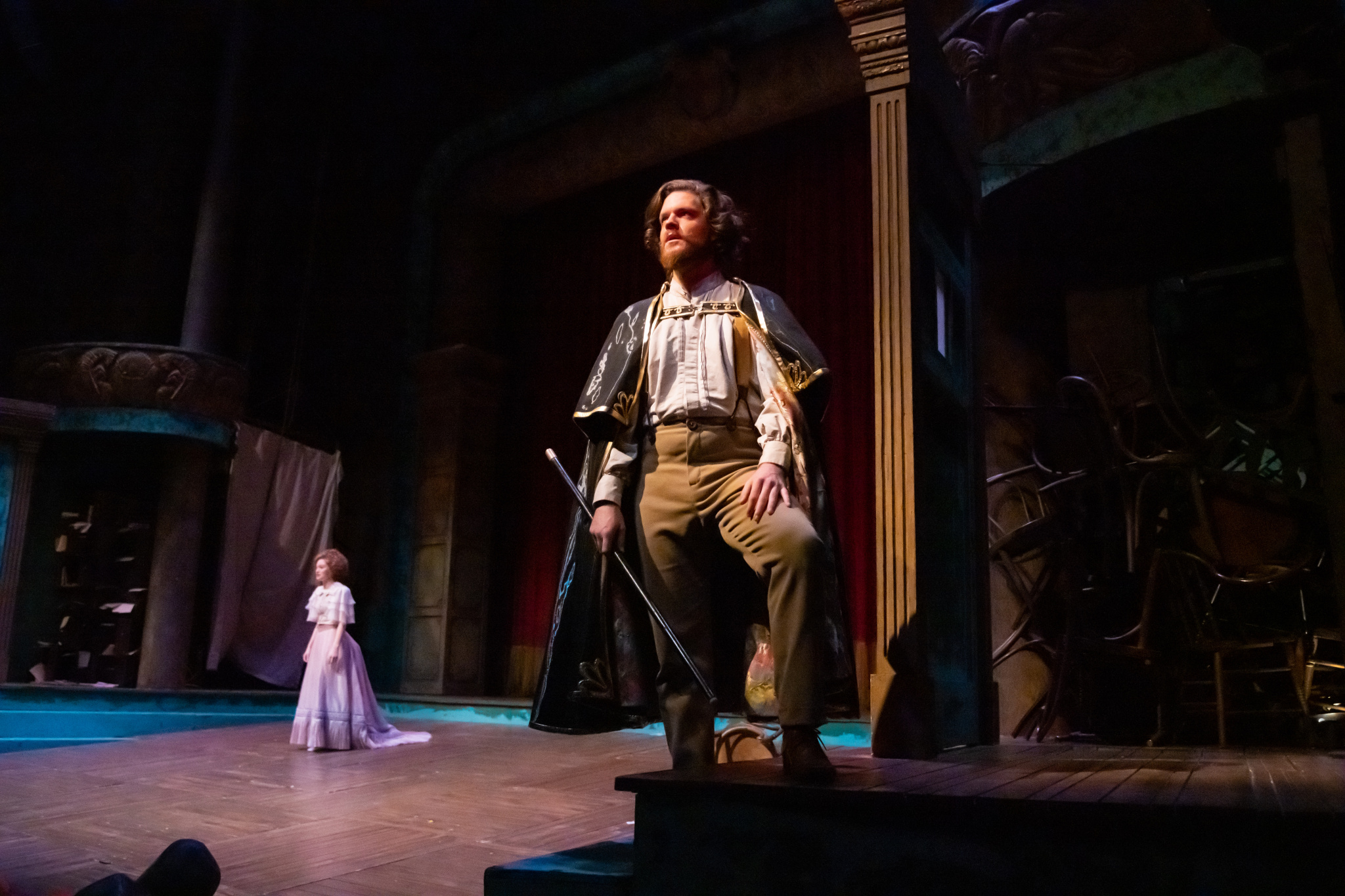
The many tricks and illusions in The Tempest promise to be a spectacle. What is it like being the instigator behind the “magic”? What do you enjoy the most about that aspect of your role?
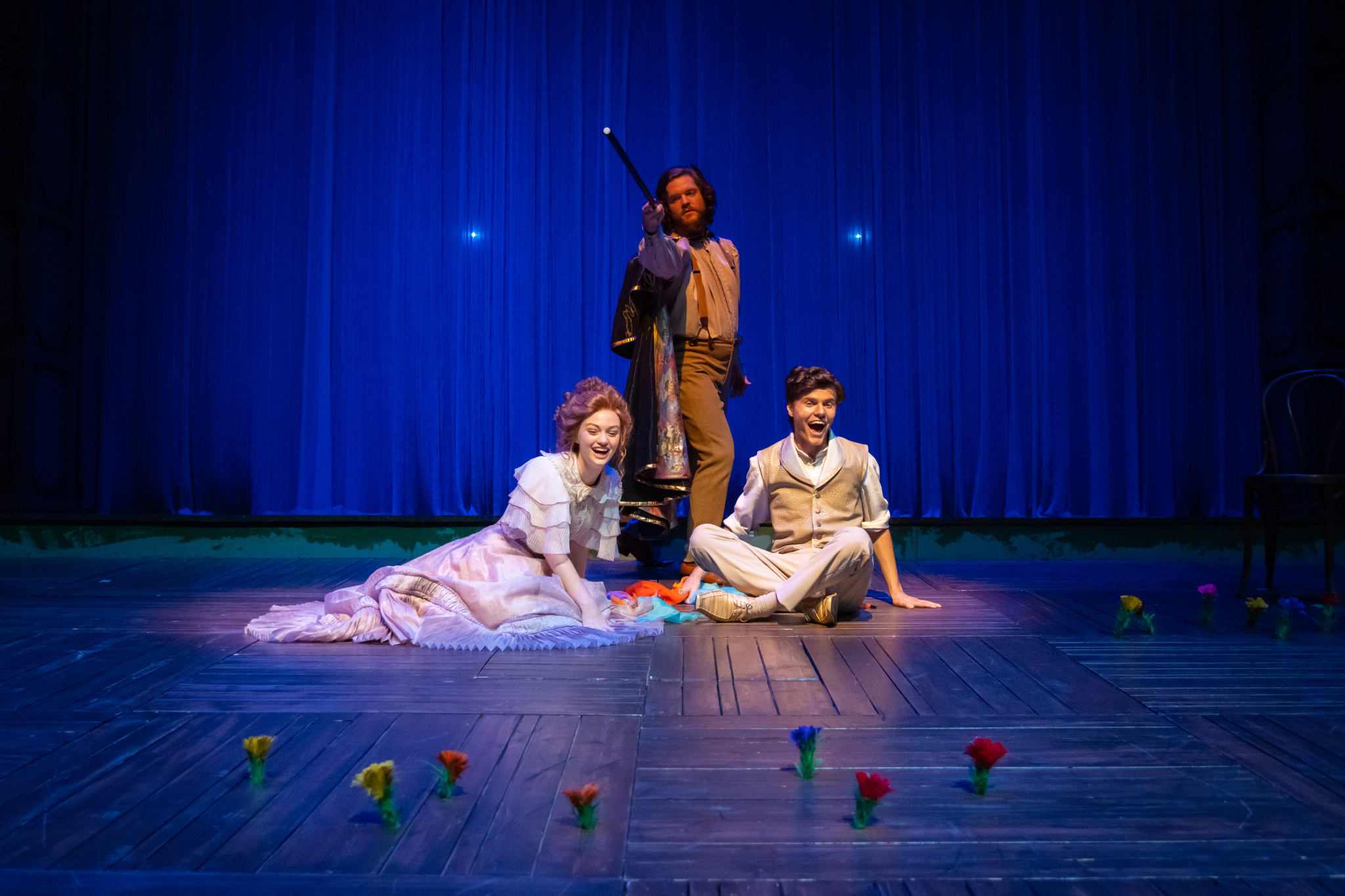
They certainly are incredible visuals, providing a tasty dessert which complements the meat of the story. It’s a great motivator for me to put even more time into the text and character work, and I always appreciate anything that forces me to make more specific choices as an actor. Any time I’m working in a show with great design elements it’s always a fantastic challenge to rise to, because the story always has to come first. Doing that work of specifying the story using the visual elements is what I enjoy the most. We hope to gift the audience with a well-told story that’s also a beautiful show, and not a beautiful show with a story in the background.
When you get into character, do you also take on a little of the Bard’s persona since some say Shakespeare wrote himself into the character of Prospero?
Being the greatest playwright that’s ever lived, Shakespeare wrote a bit of himself into every character in all of his plays and Prospero is no different in that respect. That’s what artists do. We go hear a famous violinist because of the way she is able to play a bit of herself into her music. The arts will always be expressions of the soul.
That being said, the conclusion that The Tempest is somehow Shakespeare’s bio-play or that Prospero is somehow a reincarnation of the playwright himself can only be reached by disregarding history and avoiding the play’s given circumstances. The Tempest was not Shakespeare’s last play, and Prospero’s speech which some call the Bard’s sentimental “farewell” to the theatre is actually a vision of fatalistic destruction. It’s a very troubling moment in the play, and it’s a frightening vision to step into as an actor.
The challenge for me is not “taking on the Bard,” but instead to have the courage to step fully into myself using Shakespeare’s words. Being an actor demands absolute honesty with one’s humanity, and that can be a frightening thing, but it’s also very freeing. I always view my work as an act of love (to the audience, to my fellow actors, to God, etc).
But when people witness the words of Shakespeare incarnated on stage, rather than trying to figure out the Bard, my hope would be for them to see a bit of humanity, a bit of me, a bit of you, and a bit of themselves reflected back at them; to see the struggles, victories and defeats of humanity played out in front of them; to see, even if only for a couple of hours, that their own struggles are not insurmountable, and that even on an island of isolation, they’re not alone.
Can you expound on what you mean by viewing your work as “an act of love”?
Doing the work we do as actors is rooted in our ability to be absolutely available and responsive to everything that is happening. This includes the given circumstances of the play and also our fellow actors. Allowing ourselves to be completely available and responsive is a truly frightening thing because it demands that we give up controlling or manipulatIng our partner or the scene to be what we’d prefer it to be.
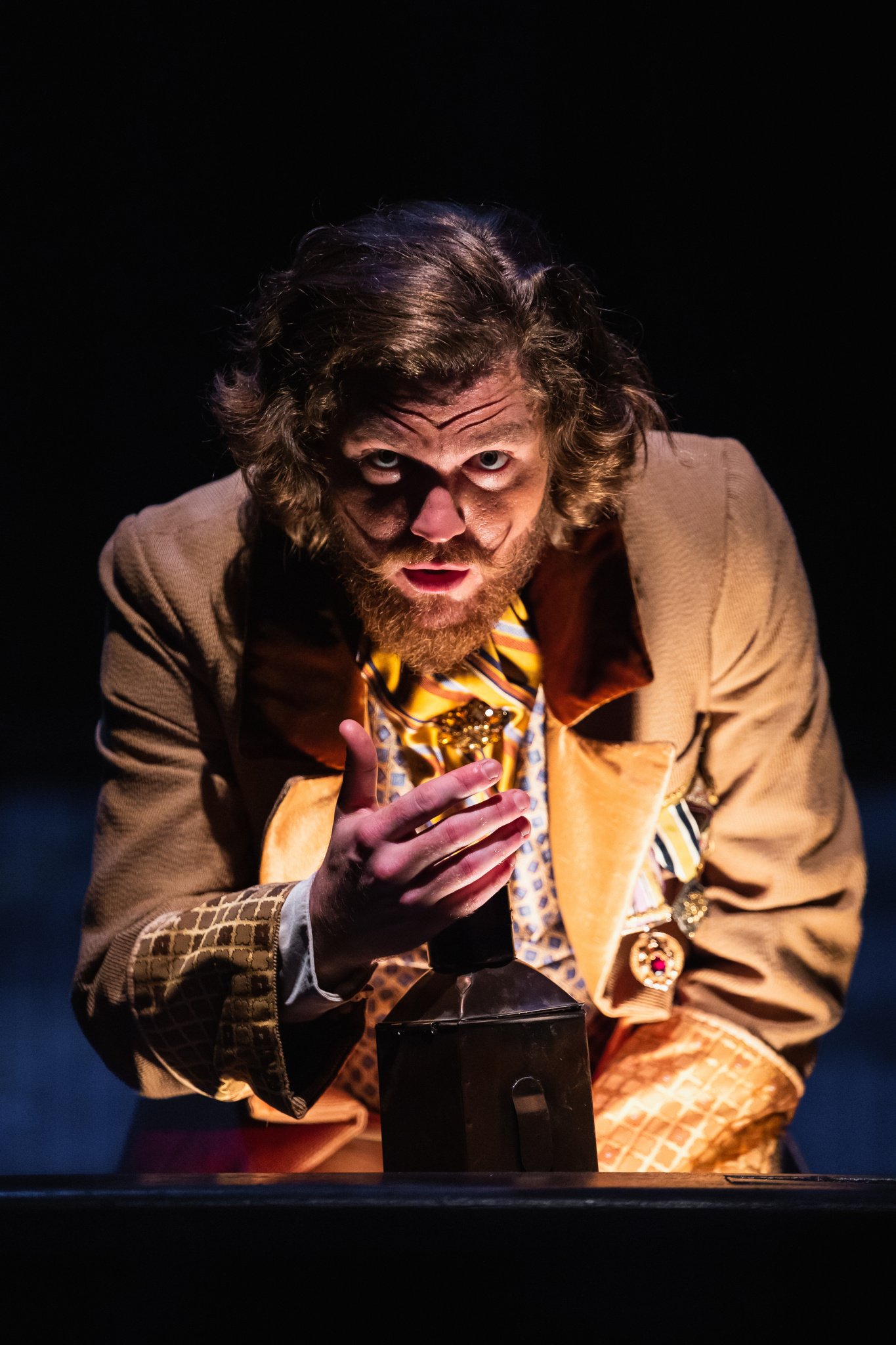
To allow truthful relationship to occur is to allow ourselves to be vulnerable. The fear of vulnerability is the primary block that an actor faces. For when that fear is indulged the actor’s attention can be only on herself, and when that happens we cannot act. But when the actor works from a place of love (which delights in truth and always trusts), then the truth to be found in vulnerability can be seen as trustworthy and even beautiful.
Fear is clever, trying constantly to pull us into the past or push us into the future, always distracting us from the truth which is only ever in the present, just inside the doorway of vulnerability. As actors, we have to allow ourselves to step through that door without knowing what’s on the other side. And as it is in life, so it is for the actor: that Love will always cast out Fear. Are there other ways of working? Absolutely. But this is what works for me and the more I commit to it, the truer it becomes.


